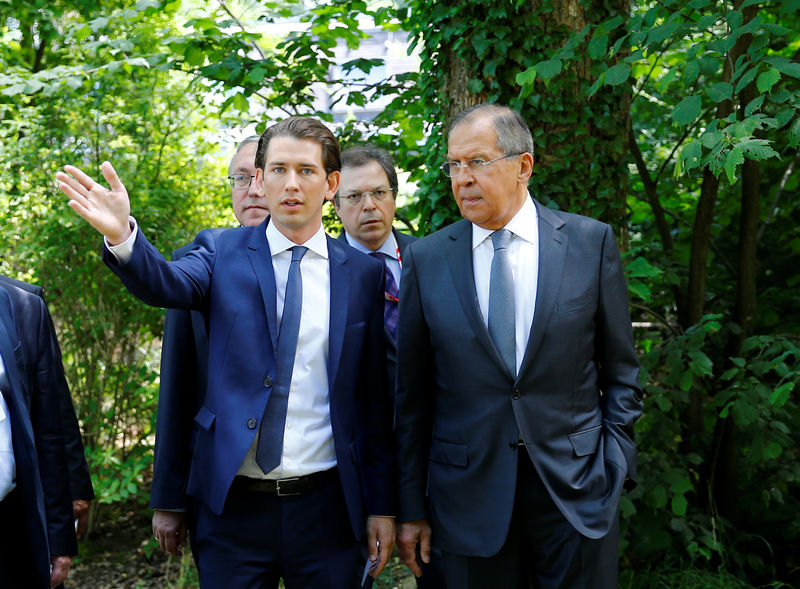VIENNA (Reuters) - Members of the Organization for Security and Cooperation in Europe (OSCE), which monitors the conflict in eastern Ukraine, overcame months of deadlock on Tuesday on filling top posts, its chairman said, praising Russia's "constructive" role.
Four leadership positions are empty because of a failure to reach unanimous agreement among the 57 member states of the security organisation, which groups the United States and Russia.
"We have to fight with a massive loss of trust in the OSCE," said Sebastian Kurz, Austria's foreign minister and current chairman of the OSCE, once a rare forum for discussion between East and West during the Cold War.
"First of all we need leadership ... This was the big challenge of the past few months, I might even say, years."
The vacant positions are the secretary general, the high commissioner on national minorities, the representative on freedom of the media and the director of the Office for Democratic Institutions and Human Rights (ODIHR), which is in charge of monitoring elections to see if they are free and fair.
Kurz said member states backed Austria's proposal that the positions be filled respectively by Switzerland's former OSCE envoy Thomas Greminger, former OSCE Secretary General Lamberto Zannier, French former Socialist Party leader Harlem Desir and Iceland's former foreign minister Ingibjorg Solrun Gisladottir.
"This is the proposal which we could politically agree upon today... (Russian) Foreign Minister (Sergei) Lavrov played a very constructive role," Kurz said.
The decision has to go through a formal process, but is expected to be confirmed next week.
An OSCE spokesman said the problem of so many unfilled positions was unprecedented in the OSCE, which has a 700-strong observer mission monitoring the conflict in Ukraine.
Fighting between pro-Russian rebels and government forces broke out in April 2014 after a pro-European uprising in Kiev ousted Ukraine's Moscow-backed president. About 10,000 people have been killed in the three-year conflict.

The European Union imposed sanctions on Russia after Moscow annexed Crimea from Ukraine in 2014 and backed separatist rebels in the east.